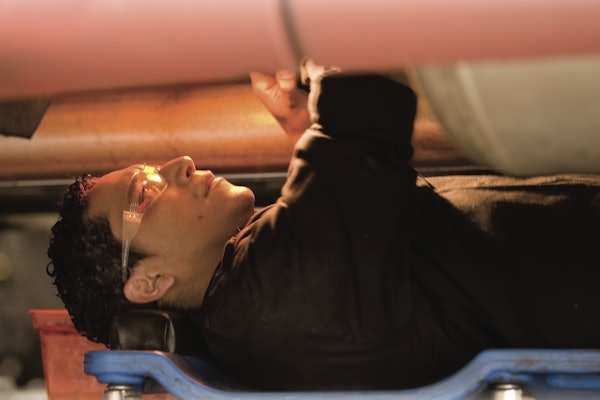
Wabash and Phillips Industries reported Friday the Phillips' REAR-VU Backup Camera a standard option on all new dry van trailers in 2025.
This addition reflects Wabash’s focus on providing practical solutions that help customers manage risk and advance connected trailer technology.
Backing incidents remain a frequent challenge for fleets, often leading to costly repairs and operational disruptions. By incorporating the REAR-VU Camera as a standard option on dry van trailers, Wabash states it is providing customers and drivers with an added tool to help reduce potential damage from backing incidents — especially in tight or congested areas.
The REAR-VU Camera is the first universal backup camera system designed for the trucking industry. Phillips says the system allows drivers to access real-time, high-definition video from behind the trailer by scanning a QR code located on the trailer nose. This feature provides an added layer of visibility to anyone operating a tractor-trailer, particularly useful in busy yards, at loading docks and in urban environments.
[RELATED: Wabash introduces Ready-to-Mount program for truck bodies]
“This collaboration with Wabash represents a significant step forward for the industry,” says Dan Forthoffer, vice president of Research and Development at Phillips Industries. “We developed the REAR-VU Camera to provide consistent visibility for any driver operating a trailer, regardless of ownership. It’s a practical solution aimed at improving safety across the board, similar to the impact in-car backup cameras have had in the automotive industry. Wabash is the first trailer manufacturer to make REAR-VU a standard option on trailers, and we look forward to seeing how these devices perform in the field so we can expand the offering.”
“At Wabash, supporting customers with practical tools that help manage risk and improve fleet performance is part of our commitment to providing smarter solutions,” adds Mark Ehrlich, vice president, Engineering at Wabash. “Working with Phillips has made it easier to integrate this technology into our trailers, so our customers can operate with greater confidence and efficiency.”












